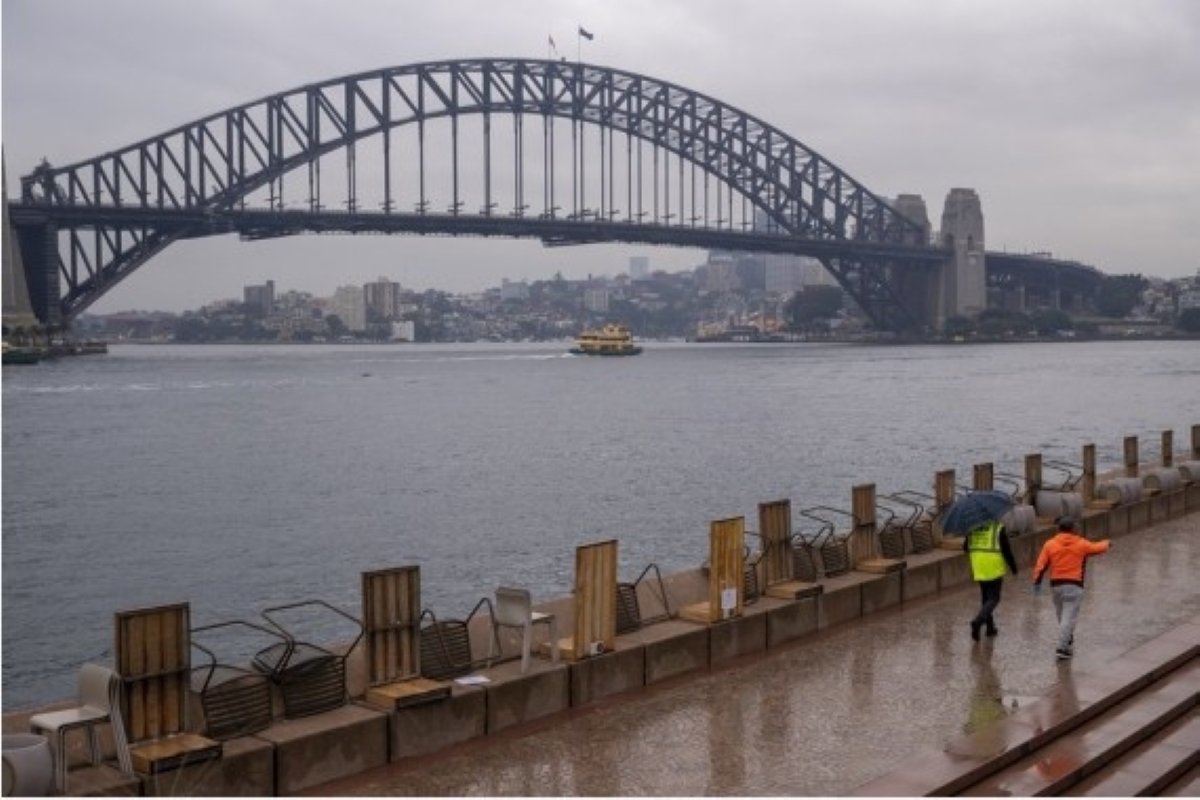With the hope for a faster containment of the ongoing Covid-19 outbreak, Australia’s most populous city of Sydney entered a new stricter lockdown, delivering another devastating blow to local small businesses.
Sam Sullivan, who runs a gym in Sydney’s inner west, said on Saturday that the gym lost at least 30 per cent of its members since the start of the lockdown about two weeks ago.
Advertisement
“When we first went into lockdown, we tried using the local park, but it seemed almost redundant. We are exposing ourselves to even more people by going to the park, so we retreated from the park and went to the carpark next to our building,” Sullivan said.
With outdoor public gatherings further limited to two people under the new restrictions announced by the state authorities on Friday, it is almost impossible for the gym to continue operation.
She is just one of Sydney’s small business owners who have struggled to adapt to ever-changing guidelines and lockdown uncertainty, which often leave small businesses in the dark.
Morgan Stanley and AMP estimated that Sydney’s two-week lockdown will cost the economy A$2 billion ($1.5 billion), or about 0.1 per cent of the annual GDP, a bill that is likely to run up as the lockdown drags on past those two weeks.
To make matters worse, the lockdown coincided with the school holiday in New South Wales (NSW), an important time for small businesses to increase tourism and families spending time out in the community.
Margy Osmon, Chief Executive Officer of Australia’s Tourism and Transport Forum, said the lockdown will decimate Australia’s mid-year holiday period.
“Our data show that in the equivalent 2019 school holidays over 1.7 million Australians travelled domestically, but we are predicting the Sydney lockdown will see that number drop drastically by 73 per cent to just over 460,000 travellers,” she said.
The NSW government already announced measures to help impacted businesses, including grants of up to A$10,000.
Small business owners are coming up with other ways to adapt to the restrictions.
Faye White, the creative director at Wayward Brewery in Sydney’s west, told Xinhua that experience from previous lockdowns had made them more prepared for this one.
“I feel like we learnt a lot in the previous lockdowns so we had some initiatives ready to go. We have had to pivot to doing takeaways only, (and) we have also removed our delivery fee to encourage people to use this option,” White said.
On Friday, the NSW Health recorded 44 new local cases, its highest one-day increase in the latest outbreak, which prompted the authorities to further tighten restrictions, dashing any hopes that the lockdown would end on time.
Sullivan told Xinhua that she believes the loss of new customer intake and retention will have an even greater ripple effect even after the lockdown ends.
Though some claimed that snap lockdown is key to preventing long-term impacts on the economy, CEO of the Business Council of Australia Jennifer Westacott told local media that each lockdown would make it harder for small businesses to return.











